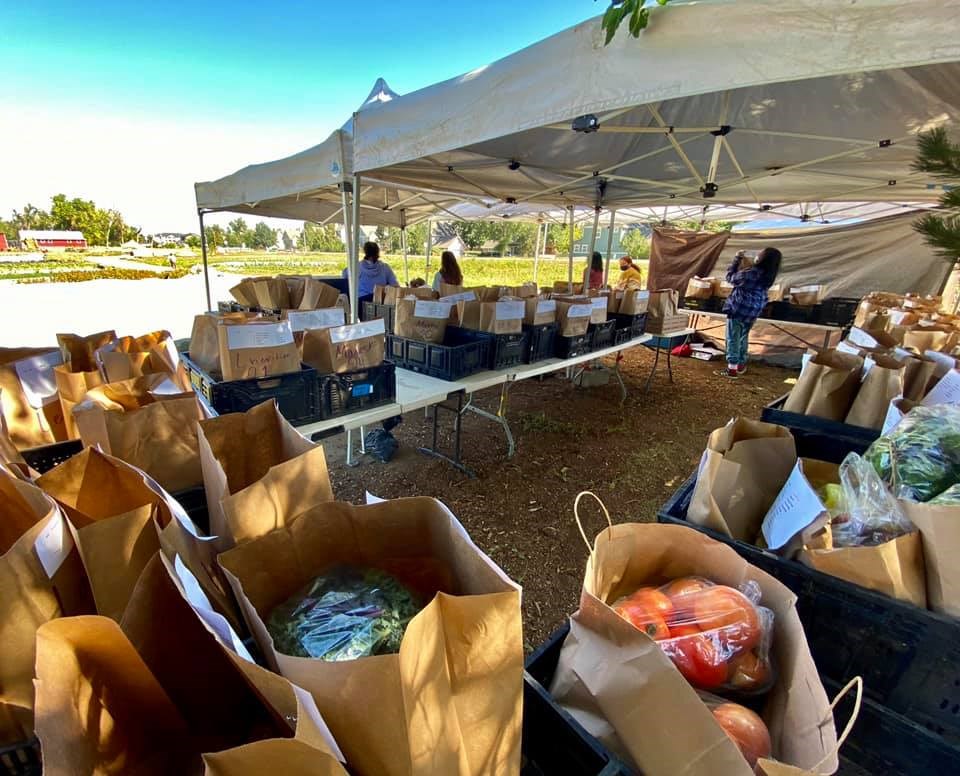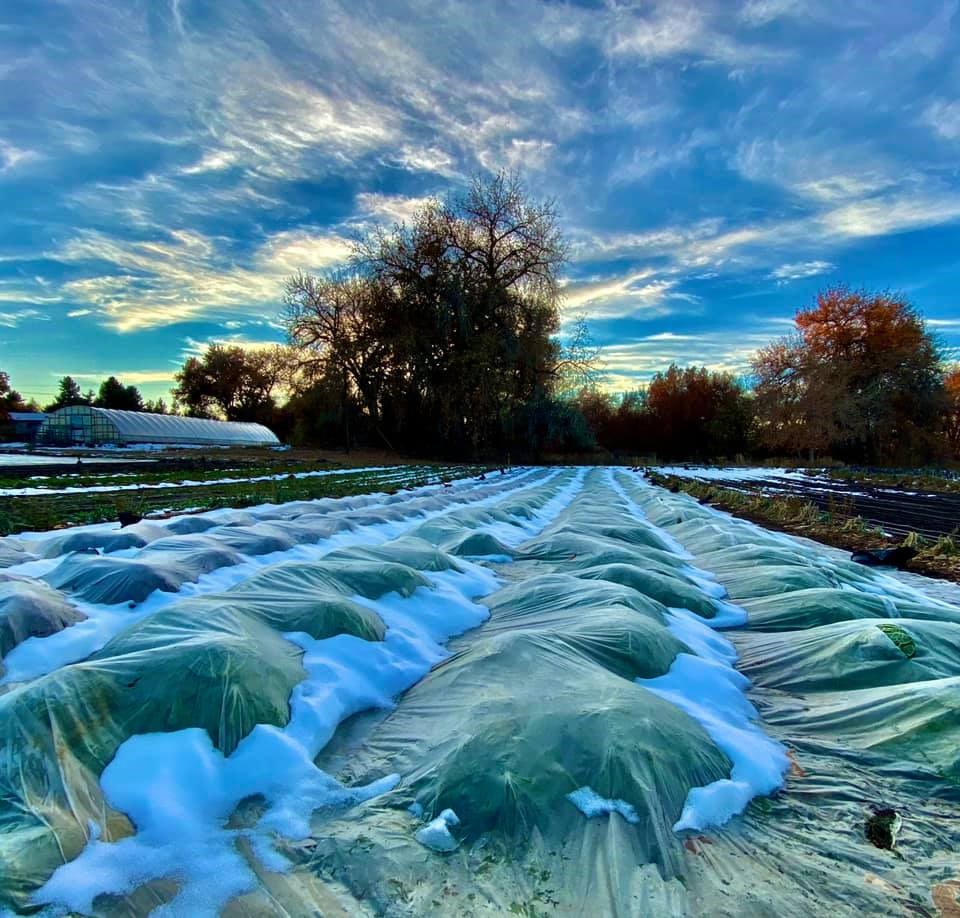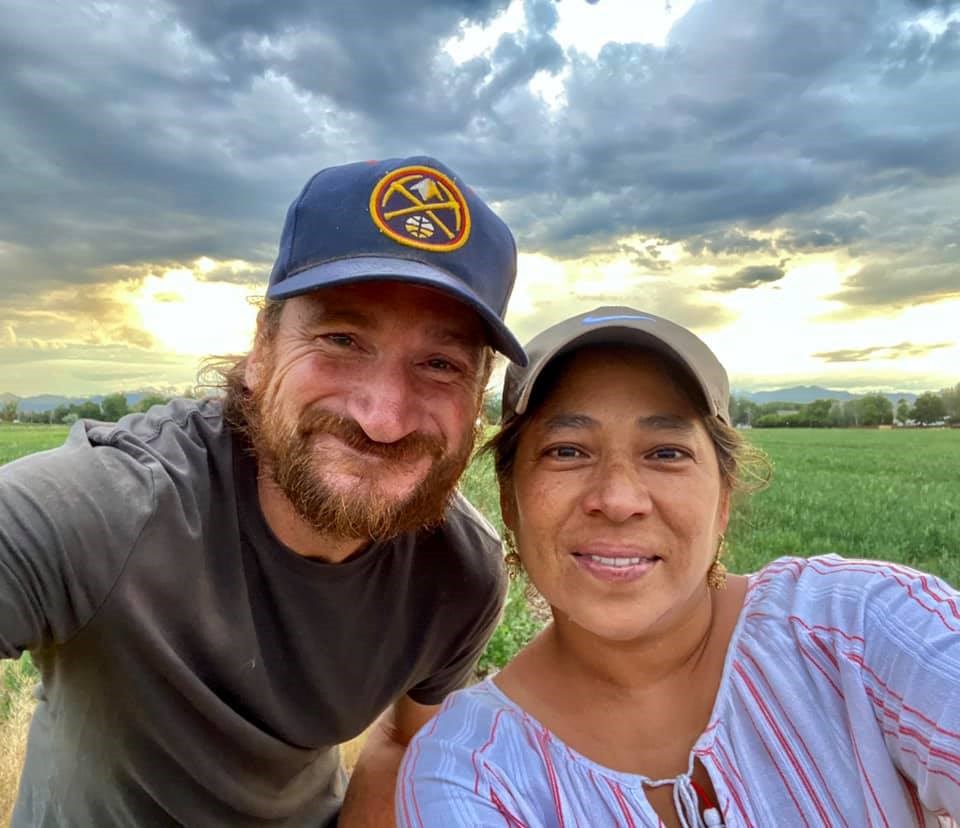Ollin Farms, a local family farm that embraces regenerative agriculture, has earned national recognition for its work with youth and the community, as well as its sustainable practices.
Close to 16 years ago, Mark and Kena Guttridge moved to Colorado to take care of his ailing grandmother and took over the farm.
“Soon we were designing a big garden and taking some things to the farmers market and just fell in love with it,” Mark Guttridge said of the origins of the farm in its current form.
“We realized it wasn't just about having food for our family, we wanted to make it available for the whole community so we started farming as a business.”
For 14 years, the Guttridges and their four daughters have made sustainability a centerpiece of the farm, which in turn has made the farm a model for others across the nation. During the pandemic, however, they seized and created opportunities to expand their reach and services.
Ollin Farms this year was recognized as a Community Food Champion by the National Farm to School Network, a nationwide organization that seeks to increase access to local food and nutrition education to improve children’s health.
“We have partnered with Ollin Farms since 2019 to provide weekly boxes of locally grown fruits and veggies as well as farmer visits and field trips to (Farm-to-Early Care and Education) participants,” said Heather Hauswirth, Farm-to-Early Care and Education liaison at Boulder County Public Health, who nominated Ollin Farms for the award. “ … The farm serves not only as a place to grow food, but also to create community, conduct research, break bread and connect with nature. When the pandemic hit, their commitment to feeding kids became even more apparent.”
Thirty organizations, farms and individuals — out of 220 nominees — were honored as Community Food Champions, according to Anna Mullen, National Farm to School Network communications director. All those honored worked to keep children fed and have proven to be highly resilient local food systems during a year of pandemic, she said.
“We are focused on that connection between local food producers and schools and early care and education sites ...,” Mullen said, adding Ollin Farms was selected because of its adaptability and commitment to providing food and education to Boulder County children.
When COVID hit, Ollin Farms partnered with Boulder County Public Health to fund 70 community supported agriculture, or CSA, shares to provide nutritious food to 70 households across the county, Mark Guttridge said.
 Ollin Farms employees distributing virtual farmstand produce orders. By Ollin Farms / Courtesy photo
Ollin Farms employees distributing virtual farmstand produce orders. By Ollin Farms / Courtesy photoNot only did the Guttridges step up their game when it came to serving families and children in need, their work with the larger community and other farmers across the region also has been cause for recognition.
Ollin Farms this year also received a 2020 Good Food Farmer & Purveyor of the Year award. Presented by Good Food 100 Restaurants, an annual list of restaurants working to build better food systems, the award honors producers and purveyors committed to sustainability and transparency.
The award was voted on by chefs and restauranteurs in the Good Food 100 and only seven recipients were named nationwide, according to Sara Brito, Good Food 100 co-founder and president. In the Rocky Mountain region, Cure Organic Farm in Boulder also received an award.
“This award is based on the quality of the nomination by chefs in the regions. We only give them the direction to nominate a farmer that they believe is committed to sustainability, transparency and advancing good food practices in the Rocky Mountain region,” Brito said, adding Ollin Farms’ nomination included mentions of the work it has done to strengthen ties to the community.
“The nominations are commending Mark and Kena for pivoting their whole operation this year in response to COVID,” she said. “They have a strong CSA distribution in Longmont and Denver, and they helped serve as a distributor for other local purveyors that lost revenue for not being in local markets this year.”
Many local farmers were impacted by COVID in many ways, especially because of limited access to farmers markets and other avenues of distribution, Mark Guttridge said.
“We did a virtual farm stand, which we transitioned to this year, it was us and about 10 other farms selling through a virtual stand. We would pack all those orders and distribute every Saturday from April through September,” Guttridge said. “(It) worked out pretty well. We were able to help out other farmers that didn't have those direct connections, and were able to move an incredible amount of high quality food into the community during the pandemic and this is really what it is all about, it is why we started farming.”
The Guttridge family for years has been working on setting up an infrastructure and network to serve the community, something that has yielded fruit for their work, both on and off the farm.
“(Early on) we realized Boulder County thinks it’s so sustainable, but according to a study done about five years ago, only 2% of the food consumed here is grown in Boulder County,” Mark Guttridge said.
“For years we have been pushing for better policy, for education about where food comes from, partnering with school districts and with Boulder County (Public) Health to get high-quality food in front of the kids and (to) bring kids to the farm to experience it firsthand,” he said.
 Napa cabbage under row cover at Ollin Farms. By Ollin Farms / Courtesy photo
Napa cabbage under row cover at Ollin Farms. By Ollin Farms / Courtesy photoProject 95 is a group effort of Ollin Farms, Boulder County, the National Resource Conservation Service, the National Oceanic and Atmospheric Administration, the St. Vrain Valley School District Innovation Center and Sustainable Organic Integrated Livelihoods, to “implement multiple conservation practices over a three year period,” according to the report.
Such practices include tree and shrub planting, rotational grazing, planting cover crops, nutrient management, mulching and developing on-farm composting.
This year, the farm’s operations have grown like never before, allowing it to serve more people than in previous seasons, Guttridge said.
“Because so much funding from the government and nonprofit organization this year went to food access programming, we went up to 20% of production of food to food insecure people, when in previous years it had been 5 to10%,” he said, adding the farm was able to feed about 500 families in the peak weeks of summer.
Registration for 2021 Ollin Farms CSA shares is open. For more information on the farm, click here.
“Ollin Farms is a pillar of the Boulder County community,” Hauswirth said. “We are so thankful for Ollin Farms and for farmers across the county who have continued to feed and support our community in spite of the pandemic.”


